A legend of laughter, wine, tea, and elusive balance
I. He Who Laughs Last
Long ago, when monks used to fight and emperors used to pray, there stood a tavern on the outskirts of Huayan city. No one owned it. It simply existed.
They said, if you entered it on the night of a full moon, you might meet the Drunken Buddha.
That was the name of a strange man in wrinkled robes, always clutching a jug of rice wine, laughing, falling, and—next moment—knocking down three fighters with a single, lazy movement.
He didn’t teach. He drank.
Sometimes, he told stories.
Sometimes, he smacked foreheads.
Sometimes, he hugged enemies.
Most thought he was mad. Until one day…
…Chen Lan came to town.
Young, proud like a bamboo arrow.
And angry, like a starving tiger.
Expelled from a monastery for disobedience, he sought a master unafraid of pain—neither his own, nor others’.
He found the tavern.
And stepped inside.
II. Wine, Dust, and the Frying Pan
The Drunken Buddha was sitting on the roof, talking to a crow. When Chen Lan approached, he fell down, did a somersault, smashed his face on the ground—and laughed.
— I want to learn, said Lan.
— You don’t like the way I drink? asked the Buddha.
— I like the way you fight.
— Then drink.
And he handed over the jug.
Thus began the strangest training.
Chen Lan washed dishes, fried duck, and lost to wine every night. Literally: the Buddha would throw him a cup. If he caught it, he poured. If not—he got punched in the stomach.
The lessons were not in forms—but in falls.
— Every strike is like duck in a wok—sizzling, flailing, but burn it for a second, and it’s ruined.
— Is that a technique?
— No. That’s dinner.
And then he’d smack him with the frying pan.
III. The Secret of Balance
A year passed. Chen Lan could fall down a staircase without spilling a drop.
He could laugh while getting hit.
He moved like a drunk, but thought like a sober tiger.
One day, the Buddha said:
— There are three kinds of drunk: from wine, from anger, and from pride. Only the first won’t kill you.
Then he added:
酒肉穿肠过,佛祖心中留
jiǔ ròu chuān cháng guò, fózǔ xīn zhōng liú
“Wine and meat pass through the gut, but Buddha remains in the heart.”
— What if I want to become a master? asked Lan.
— Then first be a cup. Then be wine. Then—be nothing.
He poured wine onto the floor.
— Tomorrow.
That night, he placed two cups before Lan—one with wine, the other with tea.
— What’s the difference? the student asked.
— Tea is for waking up. Wine—for forgetting.
— And if I want to remember without suffering?
— Then mix. Not the drinks. Yourself. Tea is the clarity of a strike. Wine is the softness of a fall.
A fighter without tea is a spark. A fighter without wine is a stick.
He drank the tea. Then the wine.
— Now I can be everything. Or nothing. Just don’t be boring.
Then he said:
茶亦醉人何须酒
chá yì zuì rén hé xū jiǔ
“Tea can intoxicate—who needs wine?”
IV. Duel with the Pure Fist
Into town came Dao Qing, a monk of the Order of the Pure Fist.
He had heard of the Drunken Buddha and considered him a disgrace.
— You defile martial arts, he said.
— You’re a teapot without a spout, replied the Buddha.
They fought.
And the Drunken Buddha lost.
He fell. And for a long time, did not rise.
Chen Lan ran to him, but the Buddha only whispered:
— Don’t fight until you’re drunk. Not on wine—on yourself.
And closed his eyes.
So Chen Lan stood.
Took the jug.
Drank.
And walked into battle.
He swayed. Laughed.
Cried and waved his arms like a conductor of the void.
Each step—unpredictable.
Each strike—like a falling star in a puddle.
Dao Qing couldn’t anticipate a single move.
And fell. Gently. Like a leaf after the storm.
V. The Final Cup
When all was over, the Drunken Buddha was already standing at the door.
He wasn’t drunk.
He looked at Lan and said softly:
— You’ve become the wine. But remember—wine doesn’t choose the cup.
— What now? Lan asked.
— Now you pour. But not for everyone. Only for those who’ve fallen and risen—without becoming bitter.
And he walked away. Without staggering.
On the tavern wall, a message remained:
“A fist is a drop.
Laughter is the wind.
He who blends them—understands.”
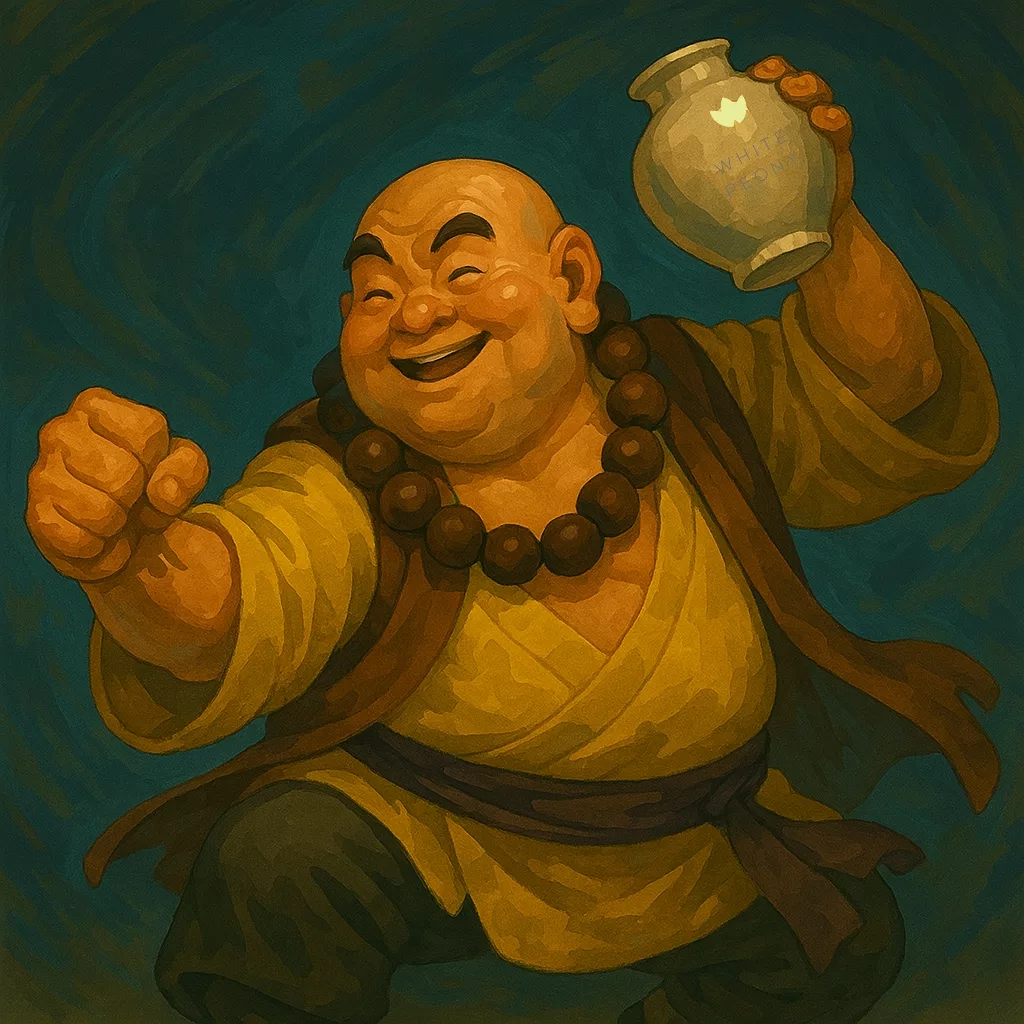
Objevte svou ideální čajovou variantu – předplaťte si a nechte se provést naším výběrem.

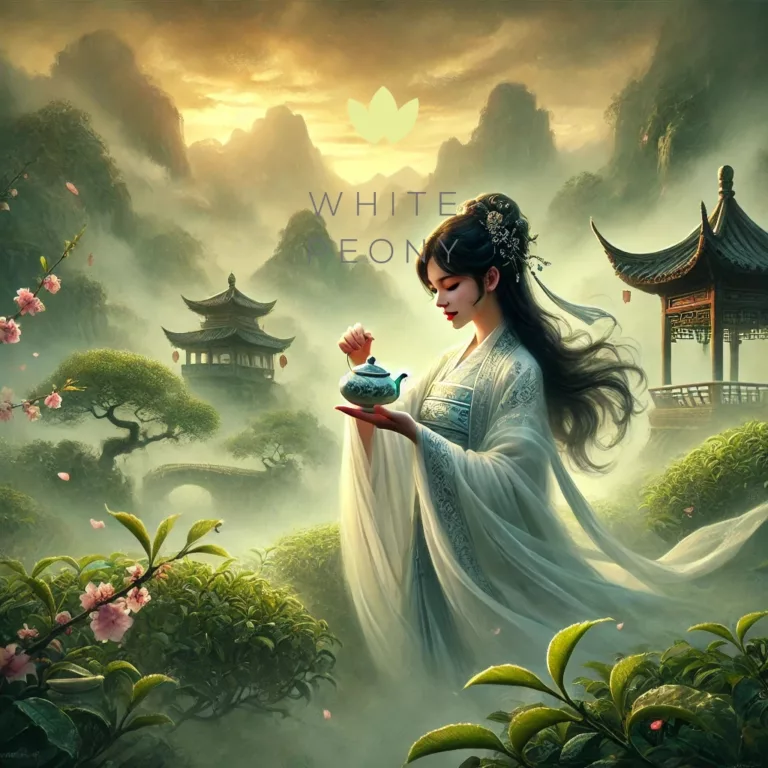
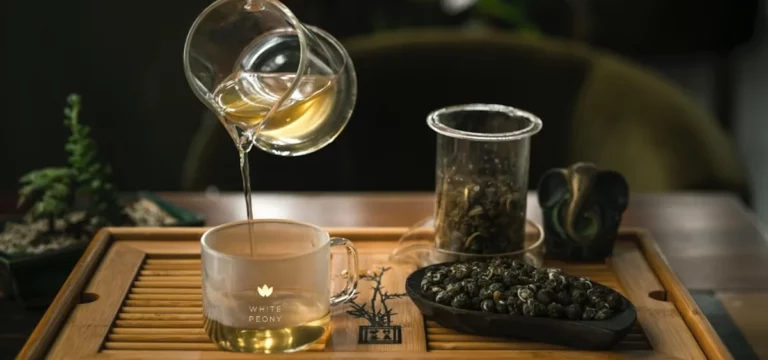
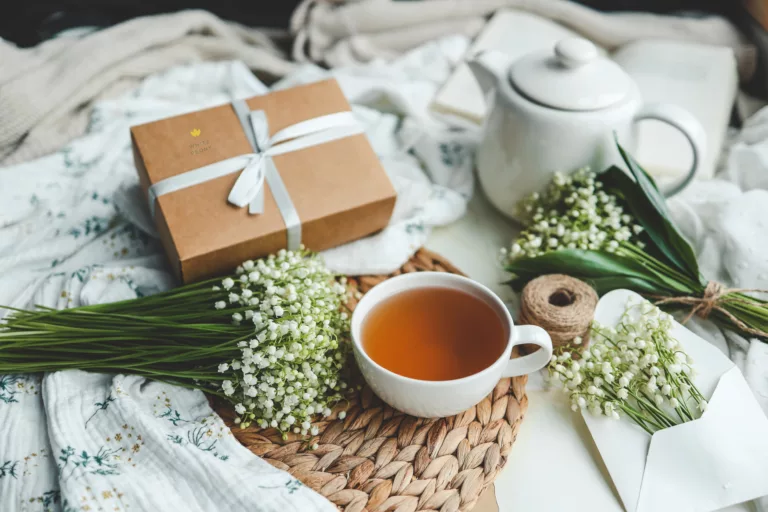
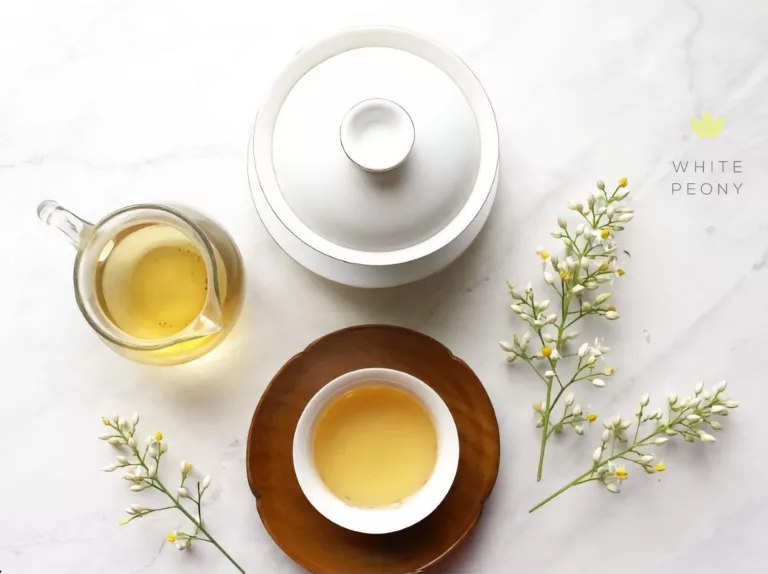
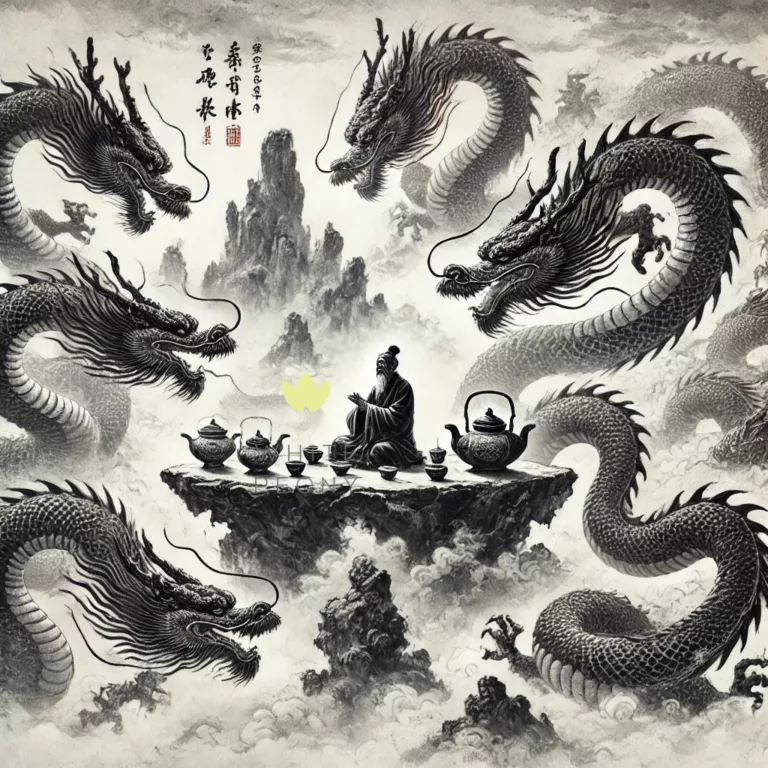
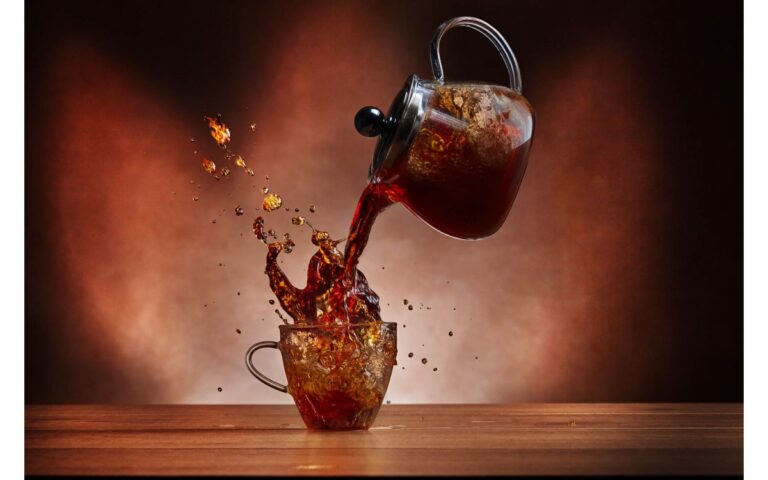
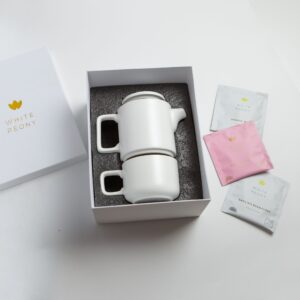 Sada Signature Ceramic Duo
Sada Signature Ceramic Duo